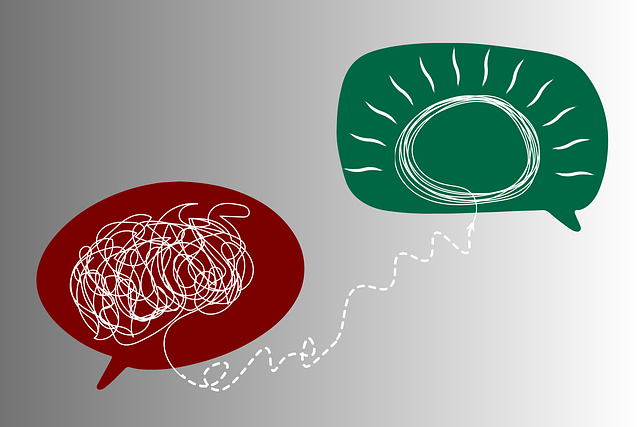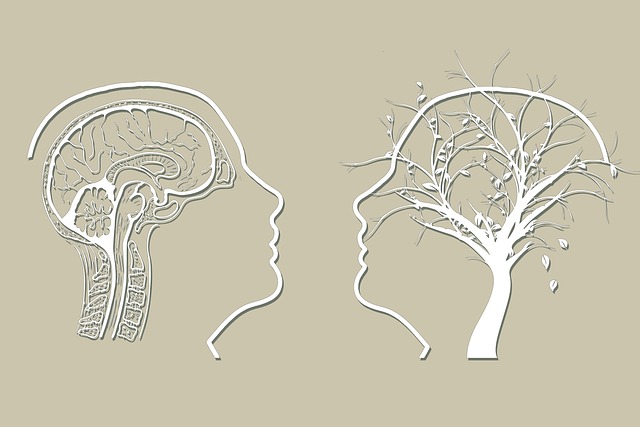The "Therapy for Young Adults Russian Speaking" podcast series aims to address key challenges faced by this demographic, including transitional life stages, academic pressures, and identity formation. Through a blend of interviews, case studies, practical tips, and evidence-based Compassion Cultivation Practices, the podcast offers therapeutic value tailored to Russian-speaking young adults. Cultural nuances are respected to create an inclusive space, with guest appearances from community leaders and Stress Management Workshops enhancing engagement. By focusing on relevant topics like self-care, relationship dynamics, and cultural-specific challenges, the series delivers accessible and appealing mental health education for its target audience.
“Unveiling the power of mental wellness podcasts, this comprehensive guide takes you behind the scenes of creating ‘Therapy for Young Adults Russian Speaking’—a series tailored for the unique needs of young adults in the Russian-speaking community. From strategic planning to engaging distribution, we explore every step. Learn how to identify key topics like stress management and cultural-specific mental health issues, transform them into captivating episodes, ensure high-quality audio, and effectively market your podcast to build a supportive community.”
- Planning and Content Strategy for Therapy for Young Adults Russian Speaking Podcast Series
- – Identifying target audience and their needs
- – Determining key topics and themes relevant to young adults in the Russian-speaking community
Planning and Content Strategy for Therapy for Young Adults Russian Speaking Podcast Series

When planning a Therapy for Young Adults Russian Speaking podcast series, it’s essential to begin with a robust content strategy. The first step involves identifying the specific needs and challenges faced by this demographic. Given that young adults often navigate transitional life stages, academic pressures, and identity formation, episodes should focus on relevant topics such as building resilience, cultivating compassion, and managing stress. Incorporate diverse formats like interviews with experts in mental health policy analysis and advocacy, case studies, and practical tips for everyday well-being.
Integrating evidence-based Compassion Cultivation Practices can enhance the podcast’s therapeutic value. This might include guided meditations or exercises that encourage self-compassion and mindfulness—skills crucial for navigating the complexities of young adulthood. Additionally, addressing cultural nuances is paramount to creating an inclusive space. Ensure the content resonates with Russian-speaking listeners by considering their unique experiences and perspectives on mental health. Leveraging guest appearances from community leaders and organizing Stress Management Workshops within the podcast’s ecosystem can further engage the target audience and foster a sense of belonging.
– Identifying target audience and their needs

When producing a podcast series focused on mental wellness, particularly for young adults speaking Russian, understanding your target audience is paramount. This demographic faces unique challenges and may require tailored support. Many young adults navigate life transitions, academic pressures, and identity formation while potentially dealing with cultural barriers to accessing care. By recognizing these needs, you can create content that resonates deeply.
The podcast can offer a safe space to explore topics like self-care practices, conflict resolution techniques, and mood management strategies that are relevant to their experiences. Incorporating Russian-language segments not only caters to the linguistic needs of your audience but also allows for cultural relevancy, fostering a stronger connection and encouraging open dialogue about mental health.
– Determining key topics and themes relevant to young adults in the Russian-speaking community

In producing a mental wellness podcast series catering to young adults within the Russian-speaking community, it’s imperative to identify and address pressing issues relevant to their lived experiences. Key topics could include navigating academic pressures, fostering healthy relationships, and managing stress, all while considering cultural nuances unique to this demographic. By delving into these areas, the podcast can offer valuable mental health education programs design tailored to their needs.
The discussion might also delve into essential aspects such as emotional intelligence and communication strategies, which play a pivotal role in mental wellness. These skills empower young adults to express themselves effectively, build supportive networks, and cope with life’s challenges. Given the importance of cultural relevance, incorporating perspectives from Russian-speaking mental health professionals and community leaders can ensure content resonates deeply with the audience, making therapy for young adults in this community more accessible and appealing.
Producing a Therapy for Young Adults Russian Speaking podcast series requires a deep understanding of the target audience’s needs and relevant topics. By carefully planning and implementing a content strategy focused on these aspects, creators can develop a valuable resource that resonates with young adults in the Russian-speaking community. Through this initiative, we can foster open conversations about mental wellness and provide much-needed support to a vital demographic.














